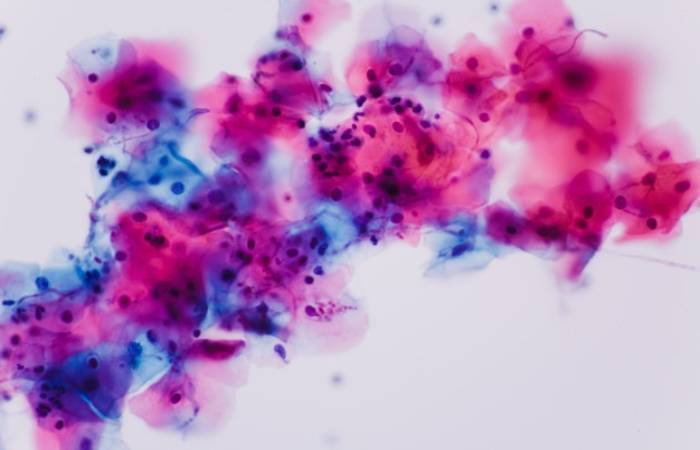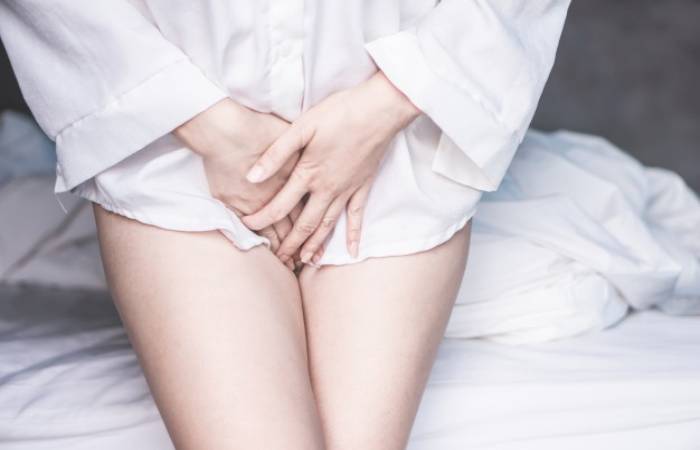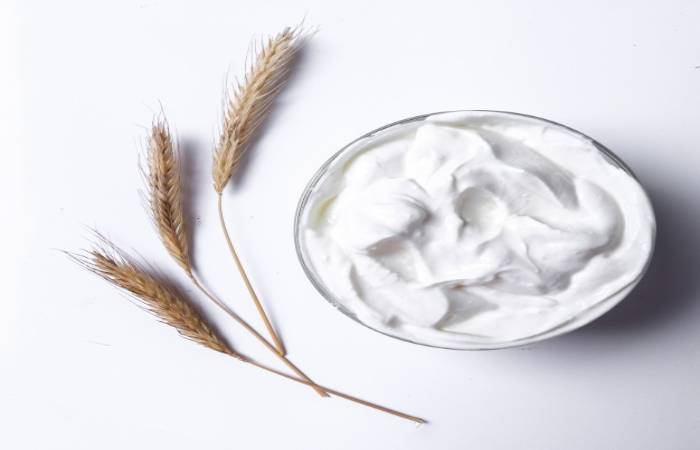Infections of Vaginal Yeast often occur before or after your period due to Hormonal changes during Menstruation.
Vaginal yeast infections or Yeast Infection before period are a common condition caused by candida, a type of fungus. While there are various possible reasons for vaginal yeast infections, it is not uncommon for them to occur at the time of menstruation.
For many women, periods of cramping, mood swings, gas, and other premenstrual syndromes (PMS) are troublesome enough. But they can get more uncomfortable if you have a yeast infection in addition to everything. Vaginal yeast infections, a condition known as vaginal yeast infections, are most likely to happen in the week before your period starts.
Vaginal yeast infections are yeast infections that can irritate in and around the vagina. They can, too, cause pain during sex and urination. A yeast infection can cause additional discomfort if it occurs just before your period.
Read on to learn more about yeast infections before the menstrual cycle, their causes, symptoms, treatment, and prevention.
Table of Contents
What is Causing Vaginal Yeast Before Your Period?
A good vagina includes a well-balanced mix of yeast and bacteria. Likewise, hormonal changes that trigger menstruation can also trigger an imbalance in the yeast and bacteria that naturally live in the vagina.
Excess of a type of fungus called Candida can lead to a yeast infection. Several strains of Candida can cause a yeast infection. The most common reliable source strain is called Candida albicans.
Fluctuating hormones and the resulting imbalance in the vaginal flora mean that there is a risk of yeast infection every month. In a small, dated study, more than half of all women who developed a vaginal yeast and bacteria imbalance found it started at the beginning of their period.
According to the 2017 study that included 7 countries, 39 percent of women have a yeast infection at any given time in a given year, and an average of 23 percent of women have more than one yeast infection in the year.
Some other factors that raise the risk of yeast infections include:
- Using birth control pills and different types of birth control
- Taking steroids
- Taking antibiotics
- Pregnancy
- Obesity
- HIV
- Diabetes
- Use of antibiotics
- Taking oral contraceptives that raise the body’s estrogen levels
- Pregnancy
- diabetes that’s not well controlled
- A weakened immune system
Moreover, using close-fitting underwear that does not let the casing to respire may affect vaginal yeast infections.

What are the Signs or Symptoms of a Yeast Infection?
Rarely, persons may not have any exact symptoms or signs of a yeast infection. So, as a result, they might be negligent; they have one.
More or less common signs and symptoms of a yeast infection take in:
- Burning in sex or urination
- Frustration and itchiness in the vagina and vulva
- Pain during urination
- Pain and soreness of the vagina
- Rash on and inside the vagina
- Redness, itchiness, or burning in and nearby the vagina
- Swelling of the vagina in severe cases
- Swelling of the vulva
- Rare vaginal discharge that is thick, white, and odorless
- The vaginal release is thick, white, and seems like cottage cheese, with no smell or water.
- Pain while sex
You can have far other severe yeast infection:
- Have severe signs, letting severe itching, swelling, and redness that effects in cracks, tears, and sores
- Might have more than four yeast infections each year
- Have diabetes that’s not well controlled
- Might Have a yeast infection that’s begun by a rare type of fungus
- Have a weakened immune system

When Should You See a Doctor?
It might time to see a doctor if:
- Your symptoms will not improve after treatment with over-the-counter antifungal vaginal creams or suppositories.
- Have extreme itching, swelling, or redness.
- You are in pain.
- Not sure if you have a yeast infection or not.
How is Vaginal Yeast Infection Diagnosed?
To do a yeast infection test, your doctor will first ask you questions about your medical history. Since recurring yeast infections are common, your doctor will likely want to know what yeast infections you have had in the past. Your doctor may also ask you if you have had sexually transmitted diseases in the past.
Your doctor directs it possible to do a pelvic exam. This involves examining both the inside and outside of the vagina for symptoms.
Finally, your doctor can take a sample of your vaginal fluids for analysis. You will use the example to try to identify the exact strain of the fungus causing the infection. This can help your doctor develop a treatment plan that will be most effective for your yeast infection.
How is Vaginal Yeast Infection Treated?
Medical Treatment
Your doctor’s medication will directly depend on your infection’s severity and how often you are prone to it. Yeast infections most commonly treated with:
- A single dose of fluconazole (Diflucan), a triazole antifungal drug that prevents the Candida fungus from multiplying; Pregnant women should not take fluconazole
- A brief treatment of antifungal medications that have inserted into the vagina for three to seven days
- An over-the-counter drug cream, ointment, tablet, or suppositories such as miconazole (Monistat 3) or terconazole; are most effective for mild yeast infections.
For recurrent or severe yeast infections, your doctor may prescribe the following treatments:
- Resident azole therapy involves inserting a boric acid capsule into the vagina (not to be taken orally); to treat fungal infections that do not respond to other antifungal medicines.
- A prolonged course of antifungal drugs in which the drug is inserted into the vagina every day for up to two weeks and then once a week for six months.
- Two single doses of fluconazole three days apart.
Note that if you are using a cream or suppository to treat your yeast infection, you cannot rely on a condom or diaphragm for birth control. The oils in some drugs can weaken latex, which is the most common material used in these contraceptives.
A person should not engage in vaginal sexual activities during treatment. This helps to prevent the infection from getting worse.
How can you Treat Vaginal Yeast Infection at Home?
Normal Greek Yogurt
The study suggests that probiotics like yogurt are effective at preventing candida from growing in the vagina. This, in turn, can help prevent yeast infections. Try to eat at least a 4-6 ounce serving of plain Greek yogurt per day for the best results.

Suppositories and Probiotic Supplements
Oral probiotic therapy that contains strains of the bacteria Lactobacillus acidophilus can help restore the balance of bacteria and yeast in your body. It can take approximately 10 days for results to see with an oral probiotic supplement. Some women use probiotic supplements as vaginal suppositories for faster results.
Coconut Oil
There is more or less proof that coconut oil can help lower Candida albicans in the vagina. Try putting on a small amount of pure organic coconut oil to the affected area.
Tea Tree Oil
Tea tree oil is well-known to kill fungi, viruses, and bacteria. According to a 2015 study, a trusted source, vaginal suppositories that contain tea tree oil, may help treat yeast infections.
Pure tea tree oil is healthy and can irritate the genitals. Make sure to dilute the oil with jojoba or coconut oil if you plan to use it as a vaginal suppository. Use tea tree oil in moderation, no more than once every few weeks.
Home remedies may not work or may not be safe. A person should speak to a doctor before using any home remedy to treat a yeast infection.
How to Avoid or Prevent Vaginal Yeast Infections?
You can help prevent yeast infections by working good vaginal hygiene. Candida grows best in warm, humid environments with lots of bacteria. While they haven’t proven effective, some general prevention tips include:
Here are a few ways to prevent these situations:
- Wipe front to back to prevent bacteria from spreading from the anus to the vagina and urinary tract.
- Wearing breathable, loose-fitting clothes
- Wear clean cotton underwear.
- Take off your swimsuit instantly after getting wet to allow your vaginal area to vent.
- Put the vaginal area clean by washing it with mild, non-perfumed soap, and water.
- Eat Greek yogurt for the probiotics it contains.
- Change your pads and tampons frequently.
- Avoiding antibiotics unless prescribed by a doctor
- Avoid very tight clothing, such as tight tights or jeans, as this can increase the amount of body heat and moisture around your genitals.
- Avoid using scented tampons or feminine sprays, powders, and perfumes, disrupting the average balance of organisms in your vagina.
Recurring Yeast Infection
Some people can develop recurring yeast infections during their lifetime. If a person contracts a yeast infection every month through menstruation, they should speak to their doctor.
A doctor may prescribe medications to be taken before a person’s period to prevent yeast infection.
The Bottom Line
Yeast infections are a general difficulty for many women just before their period. Although you cannot control the hormonal changes that can trigger a yeast imbalance, there are steps you can take to reduce the risk of yeast infection.
These infections are generally not severe and are relatively easy to treat with over-the-counter medications and home remedies. Reach your doctor if your symptoms do not improve, or if your symptoms are affecting your daily life.
Related Searches
- yeast infection every month before the period
- why do I get a yeast infection earlier or before my period
- yeast infection symptoms before period
- The yeast infection before every period
- yeast infection before and after a period
- yeast infection before the period starts
- Reoccurring yeast infection before the period
- I get a yeast infection before every period
- Hormonal yeast infection before the period
- Why yeast infection before the period
- Recurrent yeast infection before the period
